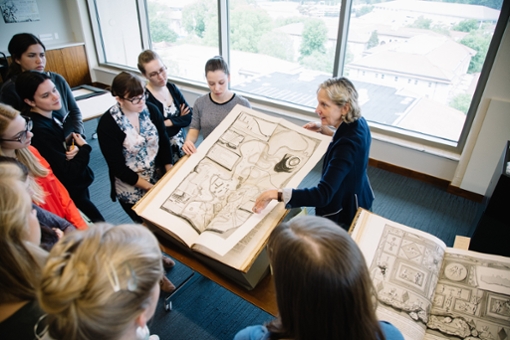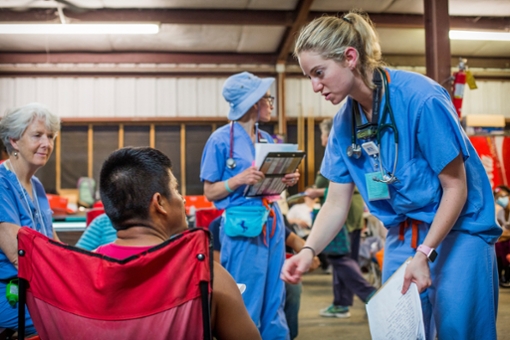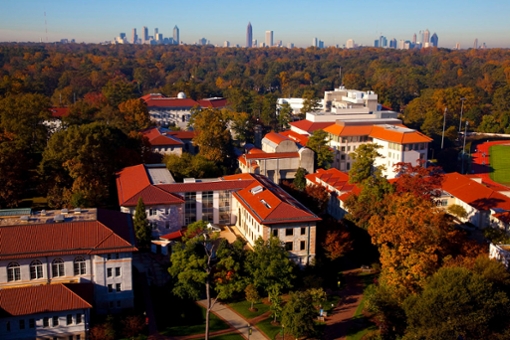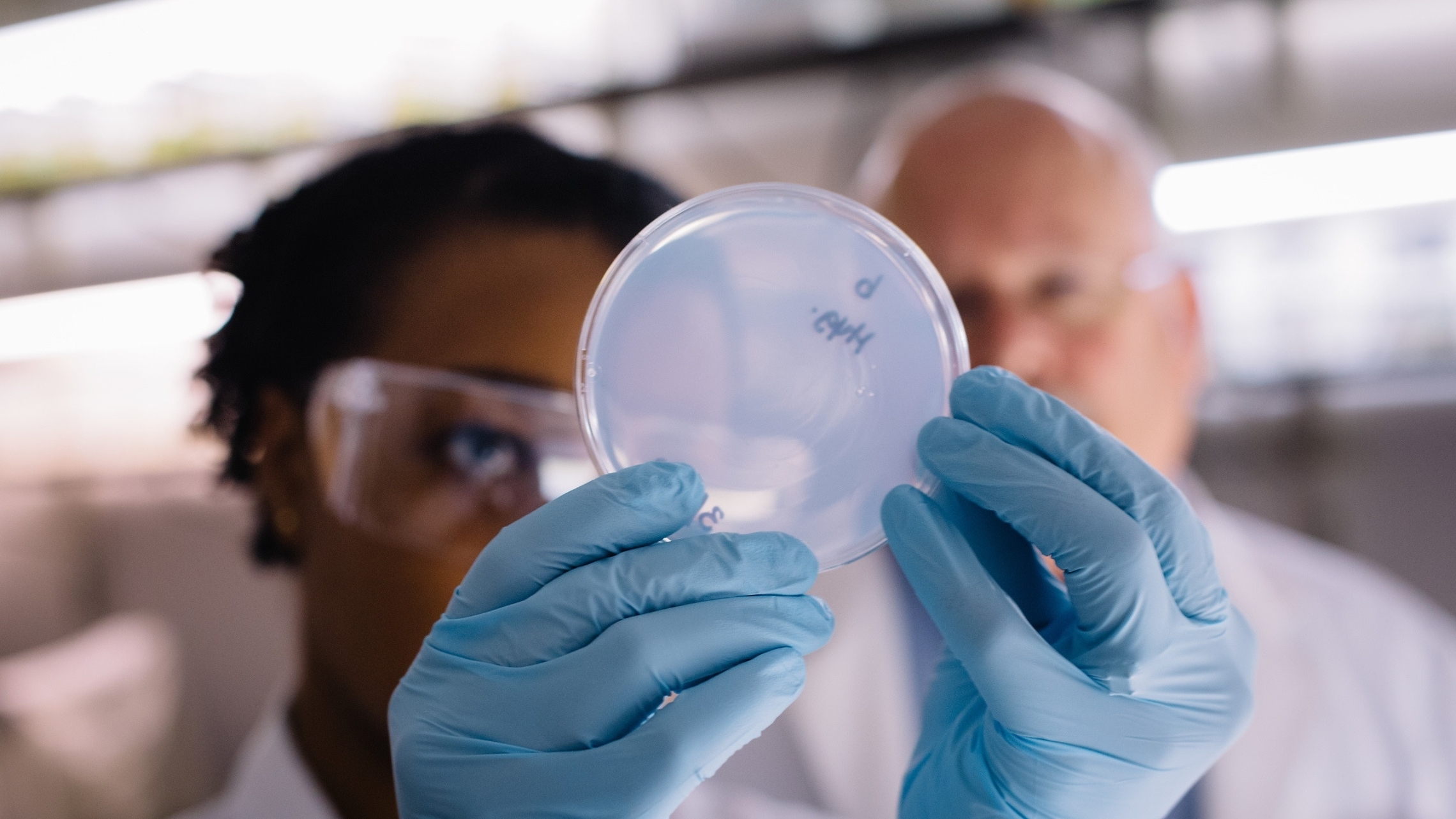
Discovery
On a perfect spring day in 1985, Craig Washington woke up with swollen lymph nodes. It was the realization of his deepest fears—the first sign of AIDS. At that time, the disease was considered a death sentence.
Today, Washington is thriving.
The Atlanta resident credits much of his active lifestyle to treatments that help HIV/AIDS patients live longer and better, including a drug developed in an Emory lab. Emtricitabine is used by nine out of 10 HIV patients in the U.S.
That’s impact on a breathtaking scale. It is but one of many life-changing discoveries to come from Emory, where research is part of our DNA, rooted in a culture of collaboration and compassion.
Robust Research Engine
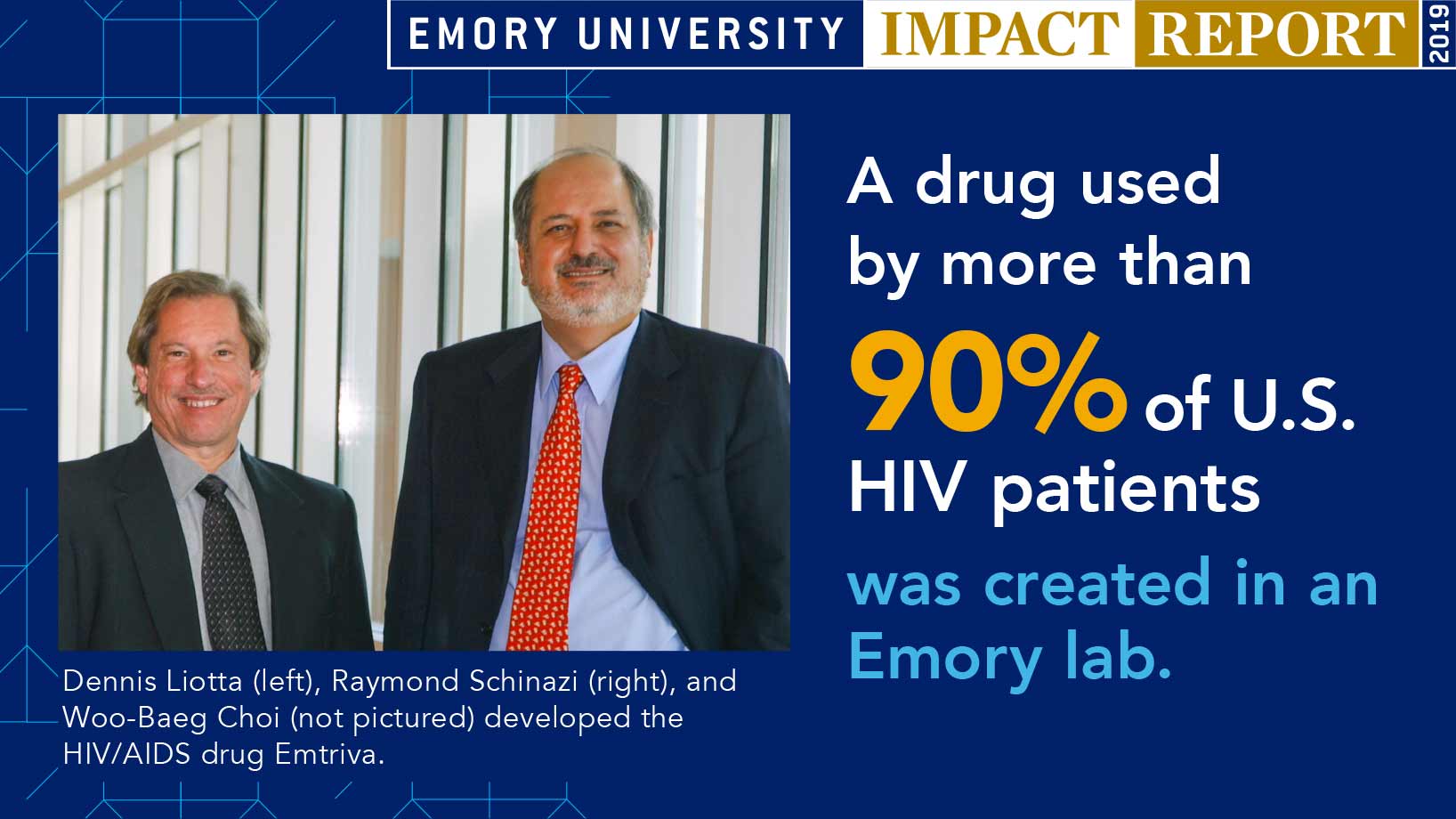
Whether it’s testing a drug to treat the coronavirus that causes COVID-19 or developing a smartphone app to detect anemia, discovering ways to repair ancient Egyptian treasures or investigating the science of the first year of a baby's life, Emory researchers maintain an unwavering focus on the greater good. Collaborations with and funding from the federal government are essential to this work.
We are at the forefront of scientific breakthroughs that enhance the health of individuals and entire populations. Through a multidisciplinary center dedicated to discovering new medicines to effectively treat or prevent Alzheimer’s. Through the development of an anti-rejection drug that has significantly improved kidney transplant survival rates. Through the search for a universal flu vaccine that could protect us not only from current flu strains but also from pandemic strains that may emerge.
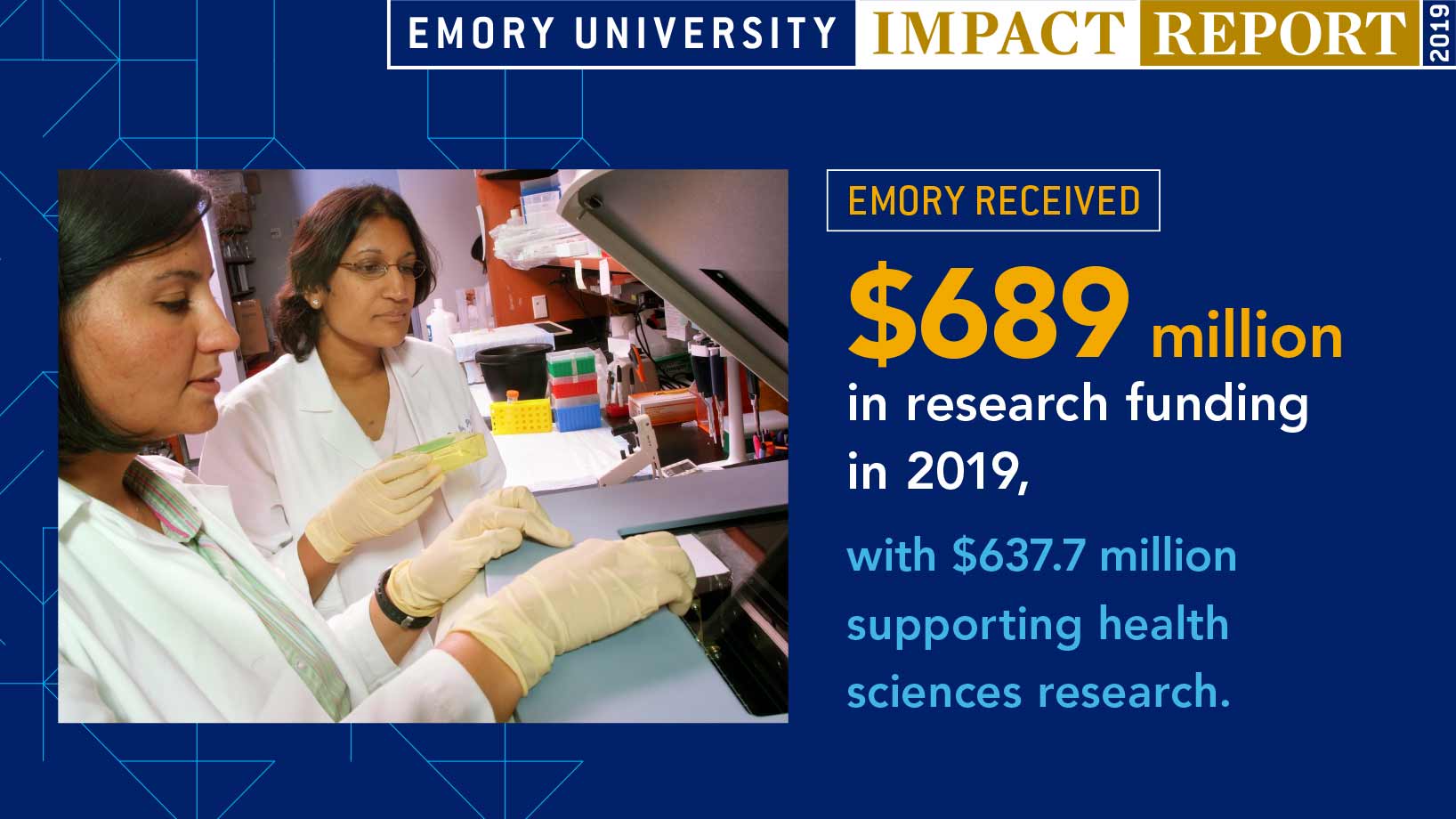
And we don’t stop there. From testing novel cancer immunotherapies (like the one used to treat former US President Jimmy Carter) to repurposing existing drugs to fight antibiotic-resistant superbugs, and from ablating the hunger nerve to fight obesity to identifying a rare genetic mutation that could solve the mysteries of autism and schizophrenia, Emory researchers are unlocking the secrets to better health and quality of life.
Making breakthrough discoveries depends on investments in the basic sciences, which is why Emory has upped already significant investment by funding two collaborative research initiatives. One focuses on developing the next generation of research tools, effective and safe drugs, and diagnostic agents. The other takes a comprehensive, cross-disciplinary approach to the threat of emerging and reemerging infectious diseases.
Serving the Underserved
True to our mission of serving humanity, we focus our research on benefitting those who need it most. In our own backyard, we are researching ways to overcome barriers to care in our local refugee communities and to increase the consumption of fresh fruits and vegetables in the city’s food deserts. In the face of skyrocketing drug costs in the US, Emory has established a multidisciplinary center dedicated to developing affordable and readily available medications.
Globally, we are working to scale up pilot studies that have been shown to reduce the incidence of diabetes and hypertension in India—an epicenter of these epidemics. We are investigating eye disease in Ebola survivors in West Africa. The university’s largest single research grant to date—$180 million—goes toward curbing preventable childhood deaths in sub-Saharan Africa and South Asia.
Inquiries in Humanities

Our research strength extends beyond the health sciences into the humanities. Emory's slave voyages database chronicles tens of thousands of voyages, changing the way people are able to study the slave trade and demonstrating the value of technology in advancing humanistic inquiry. Our faculty books challenge our understanding of ourselves and the world, from a new form of poetry to a thought-provoking examination of voter suppression, and from a chronicle of contemporary anti-Semitism to an exploration of what religion and science teach us about diet. We even pioneered a method of conducting brain scans on dogs to give us insight into the thought patterns of man’s best friend.
Whether it’s exploring the ways in which globalization, climate change, and rising inequality threaten children’s rights, cracking one of the most important, baffling problems in theoretical computer science, or looking at the role of faith communities in economic development, research at Emory sheds light on the social, cultural, and intellectual fundamentals of the human experience.
A Growing Enterprise

Ever-increasing funding is the result of this good work. During the past five years, Emory's funding for research has increased by more than 20 percent. In 2019 alone, Emory experts received $689 million in funding, more than half of which came from the federal government, primarily the National Institutes of Health. Of that, health sciences researchers received $637.7 million, supporting research in Emory’s schools of medicine, public health, and nursing, as well as Winship Cancer Institute and Yerkes National Primate Research Center.
At Emory, research does more than advance knowledge and healing. We promote creativity and power innovation, providing a critical building block in the quest to address some of society's greatest challenges. From life-changing medical advances to significant studies in the humanities, Emory is relentlessly, joyfully pursing discoveries for the betterment of humankind.
Emory is extremely proud to partner with the federal government. Federal funding is important not only for its size but also for its breadth, encompassing such disparate fields as social sciences, the arts, as well as the physical sciences and medicine.
Read On
Below is a snapshot of game-changing discoveries made possible through investments in research.
How Max Cooper may have saved your life
Meet the scientist who made a discovery that forever changed our understanding of the human immune system, opening the door to a new world of treatments and vaccines.
Read More: Launching modern immunology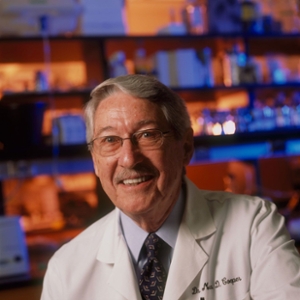
Documenting slave voyages
It has been said that if there were a Pulitzer Prize given for historical databases, Emory’s Trans-Atlantic Slave Trade Database would win it, hands down.
Read More: Studying the trans-Atlantic slave trade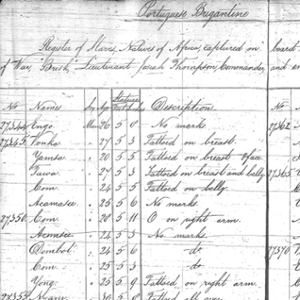
Civil War plant medicines
Traditional plant remedies used by Confederate battlefield physicians have been shown to be effective against multi-drug-resistant bacteria associated with wound infections.
Read More: Rediscovering past remedies
